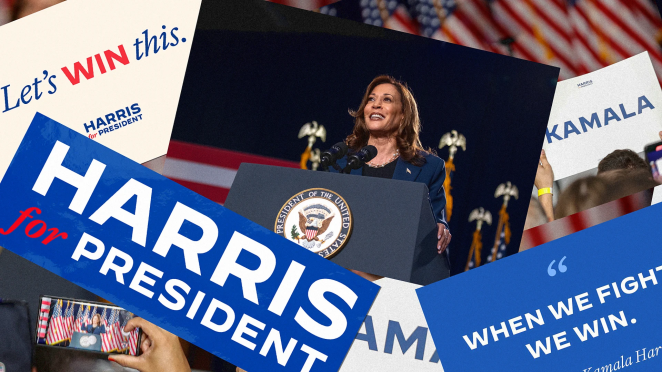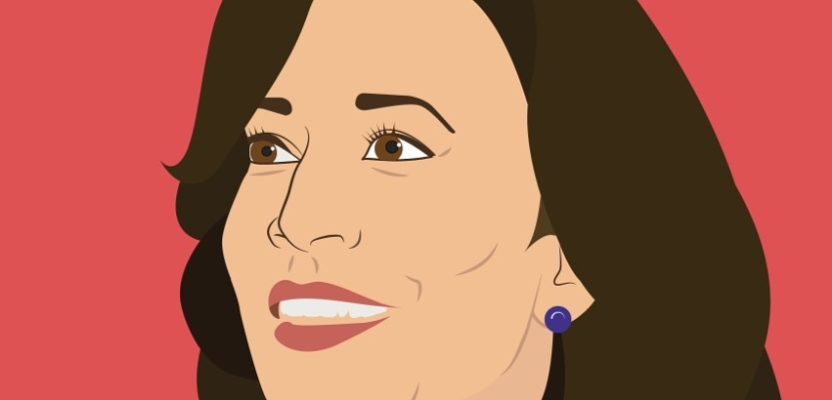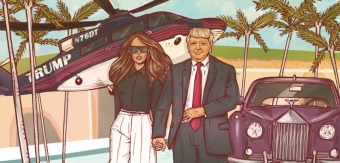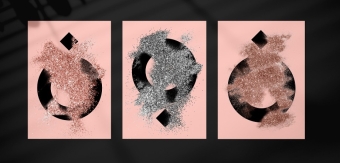To say the political landscape in the states has become rather divisive would be the understatement of the century. There are, in no uncertain terms, two diametrically sides that fundamentally disagree on almost everything, to the extent that they don’t just disagree with each other; they legitimately hate each other. This is, obviously, a pretty depressing sight to witness as an outsider and it’s one that has seemingly had a ripple effect across the rest of the developed world too.
On the 13th of July 2024, however, those divisions were underlined, quite literally with a bullet. The assassination attempt on Donald Trump catalysed a groundswell of enthusiasm among US right wingers and literally within days, all the hyperbole on both sides about “focusing on what brings us together rather than what drives us apart” fell apart like wet bread.
Of course, when Kamala Harris stepped up to the plate as the new Democratic nominee that same month, things seemed to even out a little, but the hate still remains. Indeed, you could argue her rise to the top of the ticket actually emboldened that hate. But let’s take a step back, ignore that bile and, as creatives, ask what either candidate would legitimately mean for our industries and our careers. I promise I’ll try to be as bipartisan as possible!
What if SHE Wins?
As the 2024 election draws closer, speculation about potential outcomes is rife. Among the most discussed possibilities is a Kamala Harris presidency. Should Harris take the helm, either through succession or election, it would mark a historic moment in American politics.
But what would this mean for the creative industry? The potential of a Harris administration brings a mix of optimism and uncertainty, with her track record and policy positions offering clues to what creatives might expect. Let’s delve into the vision, the hopes, and the challenges that a Harris presidency could bring to the creative community.
The Vision: Diversity, Equity, and Inclusion
Kamala Harris has built her career on a platform that champions diversity, equity, and inclusion (DEI). As the first woman of South Asian and African American descent to hold the vice presidency, her rise is emblematic of the increasing importance of representation in all sectors, including the creative industry. A Harris presidency could further amplify this trend, encouraging more diverse voices and stories to be told and heard.
For creatives, this could mean greater opportunities to explore and express a wider array of narratives. Harris's administration would likely continue to prioritise policies that promote DEI, possibly extending grant programs and funding initiatives that support underrepresented artists and creatives. Moreover, her leadership could inspire a cultural shift that values and seeks out diverse perspectives, not only in front of the camera or on the canvas but behind the scenes as well—in executive roles, production teams, and creative leadership positions.

The Hopes: Support for the Arts and Creative Economy
Harris has shown a commitment to supporting the arts and the broader creative economy. During her time as Senator, she co-sponsored legislation aimed at increasing federal funding for the arts, such as the CREATE Act, which sought to bolster the creative economy by supporting artists and creative entrepreneurs. This background suggests that a Harris presidency could bring about renewed federal support for the arts, potentially reversing cuts made in previous administrations.
The creative industry could benefit from increased funding for public arts programs, expanded tax incentives for creative professionals, and initiatives aimed at fostering innovation in digital media and technology. Harris’s focus on economic justice and equality may also translate into efforts to ensure that funding and opportunities are equitably distributed, addressing long-standing disparities within the creative sector.
Another hopeful aspect is Harris's stance on technology and innovation. As the digital landscape continues to evolve, her administration might push for policies that protect intellectual property rights while fostering innovation. This could provide a more secure environment for digital creatives, from independent artists to large creative agencies, to experiment and thrive.
The Challenges: Balancing Progress with Pragmatism
While the potential benefits of a Harris presidency for creatives are significant, there are also challenges to consider. One of the key concerns is the balance between progressivism and pragmatism. Harris has often positioned herself as a pragmatic progressive, willing to work within the system to achieve incremental change. For the creative industry, this could mean a gradual approach to implementing policies that support the arts, which might not always satisfy those seeking immediate and sweeping reforms.
Moreover, Harris’s close ties to the tech industry, particularly Silicon Valley, could be a double-edged sword for creatives. While this connection might lead to supportive policies for digital innovation, there could also be concerns about how these policies are shaped. The tech industry’s influence could result in a focus on commercial viability over artistic integrity, potentially prioritising profitable digital platforms over the preservation and promotion of traditional and independent arts.
There is also the question of how a Harris administration would navigate the polarised political landscape. As the country remains divided, any significant push for progressive policies in the arts could face resistance, limiting what can be achieved during her tenure. Creatives may find themselves in the midst of political battles over cultural funding, content regulation, and the role of the arats in public life.
Conclusion: A Presidency of Possibility
A Kamala Harris presidency represents a moment of possibility for the creative industry. Her commitment to diversity, equity, and inclusion, along with her support for the arts and innovation, could create an environment where creativity is not only valued but actively nurtured. However, the path forward would likely be marked by the need to balance ambitious goals with the realities of political pragmatism.
For creatives, the potential of a Harris administration lies in its ability to open doors for new voices and to support the industry through targeted policies and funding. But it also requires vigilance in ensuring that the creative freedom and integrity of the arts are upheld in the face of commercial and political pressures.
Ultimately, the impact of a Kamala Harris presidency on the creative industry will depend on how she navigates the complex intersections of culture, politics, and economics. Creatives may find themselves both inspired by the possibilities and challenged by the need to advocate for their place in a rapidly changing landscape.







